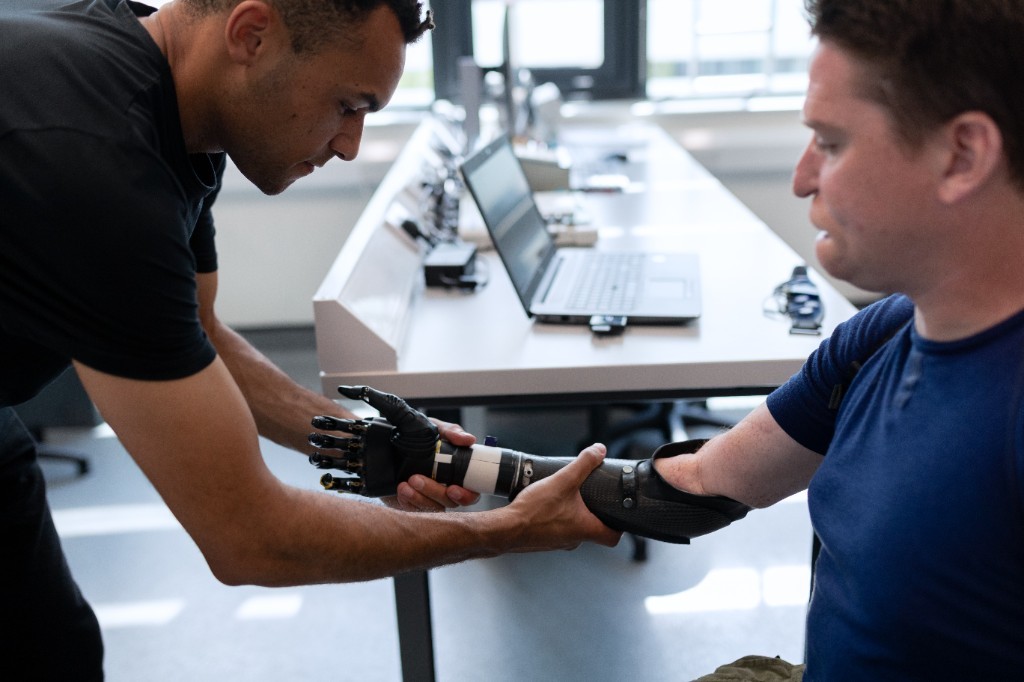In recent years, there has been a significant advancement in the field of Artificial Intelligence (AI) and Augmented Reality (AR). These technologies have become increasingly popular and have the potential to enhance virtual experiences in various fields such as gaming, education, healthcare, and...
The Impact of Artificial Intelligence and Robotics on Patient Care in the Healthcare Industry

In recent years, there has been a significant increase in the use of artificial intelligence (AI) and robotics in the healthcare industry. These technologies have the potential to revolutionize patient care, improve outcomes, and enhance the overall efficiency of healthcare systems.
AI and robotics can be used in various ways to transform patient care. For example, AI algorithms can be used to analyze medical data and identify patterns that may not be easily detectable by human doctors. This can help in the early detection and diagnosis of diseases, leading to more effective treatments and improved patient outcomes.
Furthermore, robots can be used to assist in surgeries, perform routine tasks such as taking vitals and delivering medication, and even provide companionship and emotional support to patients. These robots can free up healthcare professionals to focus on more complex tasks and provide personalized care to patients.
However, the integration of AI and robotics into healthcare systems also raises ethical and social considerations. Questions about privacy, security, and the potential impact on human jobs need to be carefully addressed to ensure that these technologies are used responsibly and for the benefit of patients.
In conclusion, the use of AI and robotics in healthcare has the potential to greatly enhance patient care and improve outcomes. However, it is important to carefully consider the ethical and social implications of these technologies to ensure that they are implemented in a responsible and beneficial manner.
The Role of AI in Healthcare Robotics
Artificial Intelligence (AI) plays a crucial role in transforming patient care through healthcare robotics. AI algorithms and technologies enable robots to perform a wide range of tasks in healthcare settings, from assisting patients with daily activities to conducting complex surgeries. The integration of AI in healthcare robotics has the potential to improve patient outcomes, enhance efficiency, and revolutionize the way healthcare is delivered.
One of the key advantages of AI in healthcare robotics is its ability to process and analyze vast amounts of medical data. AI algorithms can quickly analyze patient information, medical records, and imaging data to make accurate diagnoses and treatment recommendations. This ability to rapidly analyze data allows healthcare robots to provide real-time insights and support to healthcare professionals, improving decision-making and reducing the risk of errors.

Enhancing Patient Care
AI-powered healthcare robots have the potential to significantly enhance patient care. These robots can assist patients with daily activities, such as bathing, dressing, and medication reminders, improving their independence and quality of life. Additionally, robots can monitor patients' vital signs, collect data, and alert healthcare professionals in case of any abnormalities or emergencies. This constant monitoring and support can help prevent adverse events and provide timely interventions, leading to better patient outcomes.
Improving Efficiency
AI in healthcare robotics also improves efficiency in healthcare settings. Robots can automate repetitive tasks, such as medication dispensation and inventory management, freeing up healthcare professionals to focus on more complex and critical tasks. AI algorithms can also optimize scheduling and resource allocation, ensuring that healthcare facilities operate at their highest capacity. By streamlining processes and reducing human errors, AI-powered robots contribute to increased efficiency and cost-effectiveness in healthcare delivery.
Advancing Surgical Procedures
AI technologies are revolutionizing surgical procedures through robotic assistance. Surgical robots equipped with AI algorithms can perform precise and minimally invasive procedures, reducing the risk of complications and improving patient recovery times. AI-powered robots can analyze real-time surgical data, provide surgeons with guidance and recommendations, and even perform certain tasks autonomously. This collaboration between AI and surgeons enhances surgical precision, enables complex procedures, and expands the capabilities of healthcare professionals.
Challenges and Future Directions
While AI in healthcare robotics holds immense potential, there are also challenges that need to be addressed. Ensuring the security and privacy of patient data, addressing ethical concerns, and establishing regulatory frameworks are key considerations in the integration of AI in healthcare robotics. Additionally, ongoing research and development are necessary to refine AI algorithms, improve robot-human interaction, and enhance the adaptability of robots to various healthcare environments.
Looking ahead, the role of AI in healthcare robotics is likely to expand further. As technology continues to advance, we can expect more sophisticated robots with enhanced AI capabilities to enter healthcare settings. These robots will play an increasingly important role in patient care, assisting healthcare professionals, and improving healthcare outcomes.



